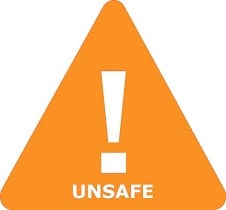Is Horsetail Rush (Equisetum arvense) Safe in Breastfeeding
Question
I am a breastfeeding mother and i want to know if it is safe to use Horsetail Rush (Equisetum arvense)? Is Horsetail Rush (Equisetum arvense) safe for nursing mother and child? Does Horsetail Rush (Equisetum arvense) extracts into breast milk? Does Horsetail Rush (Equisetum arvense) has any long term or short term side effects on infants? Can Horsetail Rush (Equisetum arvense) influence milk supply or can Horsetail Rush (Equisetum arvense) decrease milk supply in lactating mothers?
Horsetail Rush (Equisetum arvense) lactation summary

- DrLact safety Score for Horsetail Rush (Equisetum arvense) is 5 out of 8 which is considered Unsafe as per our analyses.
- A safety Score of 5 indicates that usage of Horsetail Rush (Equisetum arvense) may cause serious side effects in breastfed baby.
- Our study of different scientific research indicates that Horsetail Rush (Equisetum arvense) may cause moderate to high side effects or may affect milk supply in lactating mother.
- Our suggestion is to use safer alternate options rather than using Horsetail Rush (Equisetum arvense) .
- It is recommended to evaluate the advantage of not breastfeeding while using Horsetail Rush (Equisetum arvense) Vs not using Horsetail Rush (Equisetum arvense) And continue breastfeeding.
- While using Horsetail Rush (Equisetum arvense) Its must to monitor child for possible reactions. It is also important to understand that side effects vary largely based on age of breastfed child and time of medication in addition to dosage.
- Score calculated using the DrLact safety Version 1.2 model, this score ranges from 0 to 8 and measures overall safety of drug in lactation. Scores are primarily calculated using publicly available case studies, research papers, other scientific journals and publically available data.
Answer by Dr. Ru: About Horsetail Rush (Equisetum arvense) usage in lactation
On latest update no relevant published data on breastfeeding were found. Side effects and toxicity have not been tested, therefore its use would be preferably avoided or as much use it infrequently. Topical use is compatible with breastfeeding whenever it not used on the nipple. Stems of Horsetail Rush (Equisetum arvense) are used. It contains mineral salts (Sílicium, Potassium), flavonoids and steroids. Unproven effects are: diuretic, wound healing for burning injuries. Prolonged or abusive use may produce gastritis, vomiting, sea-sickness or stupor. May be confused with Equisetum palustre which is toxic due to that it contains Thiaminase and be cause of severe Vitamin B1 deficiency. A case possibly related to the appearance of Autism after the prolonged use in pregnancy has been described.
Alternate Drugs for Phytotherapy, Systemic Use
Chasteberry(Unsafe)
Chamomile(Safe)
Echinacea(Low Risk)
Alfalfa(Unsafe)
Dong Quai(Low Risk)
Cranberry(Safe)
Licorice(Unsafe)
Rhubarb(Low Risk)
Lavender(Low Risk)
Sweet Briar(Safe)
Barberry(Dangerous)
Carob(Safe)
Common Poppy(Unsafe)
Angelica(Unsafe)
Star Anise(Dangerous)
Mugwort(Unsafe)
Edible Burdock(Low Risk)
Box(Unsafe)
Boldo(Unsafe)
Bromelains(Safe)
Calaguala(Safe)
Caralluma(Low Risk)
Carrageen(Low Risk)
Horse Chestnut(Safe)
Blue-Cohosh(Dangerous)
Indian Pennywort(Safe)
Squisandra(Low Risk)
Prickly Pear(Safe)
Black-Cohosh(Unsafe)
Horsetail(Unsafe)
Colocynth Pulp(Dangerous)
Ergot Fungus(Dangerous)
Ephedra(Unsafe)
Steviol(Safe)
Eucalyptus(Unsafe)
Eyebright(Safe)
Flowers(Low Risk)
Fucus(Unsafe)
Goat´s Rue(Unsafe)
Bearberry(Unsafe)
Guarana(Low Risk)
Devil’s Claw Root(Low Risk)
Herniary(Low Risk)
St. John´s Wort(Safe)
Hyssop(Unsafe)
Syrup Of Ipecac(Low Risk)
Jin Bu Huan(Dangerous)
Kava Kava(Dangerous)
Clubmoss(Unsafe)
Maca(Safe)
Common gromwell(Unsafe)
Nux Vomica(Dangerous)
White Nettle(Safe)
Papain(Low Risk)
Passion Flower(Low Risk)
African Cherry(Dangerous)
Scots Pine(Unsafe)
Pycnogenol(Safe)
Pennyroyal(Unsafe)
Primrose(Safe)
Radish(Safe)
Ironwort(Low Risk)
Liquorice(Unsafe)
Rooibos(Safe)
Rose Hip(Safe)
French rose(Safe)
Butcher´s Broom(Safe)
Willow(Safe)
Soy(Low Risk)
Herbal Teas(Low Risk)
Rock Tea(Low Risk)
Lime Flower(Safe)
Tormentil(Safe)
Meadow-Sweet(Low Risk)
Golden Rod(Safe)
Sarsaparilla(Low Risk)
Sweet Flag(Unsafe)
Saw palmetto(Low Risk)
Common gum cistus(Low Risk)
Cat's Claw(Low Risk)
Milk Vetch(Low Risk)
Chinese angelica(Low Risk)
White Mulberry(Low Risk)
Di Huang(Low Risk)
Zi Wan(Unsafe)
Dang Shen(Low Risk)
Reishi(Low Risk)
glycyrrhizic acid(Unsafe)
Glycyrrhizin(Unsafe)
American cranberry(Safe)
Carrageenan(Low Risk)
Carrageenin(Low Risk)
Verbena officinalis(Low Risk)
Passion Vine(Low Risk)
Chaste Tree(Unsafe)
Sweet Cane(Unsafe)
Sweet root(Unsafe)
Irish Moss(Low Risk)
Bromelain(Safe)
Bromelin(Safe)
Acorus calamus(Unsafe)
